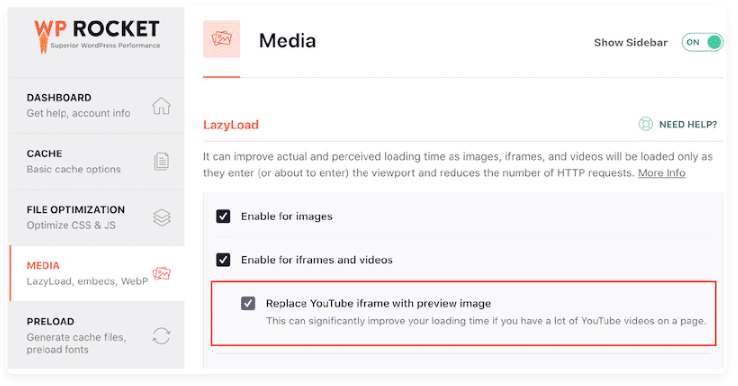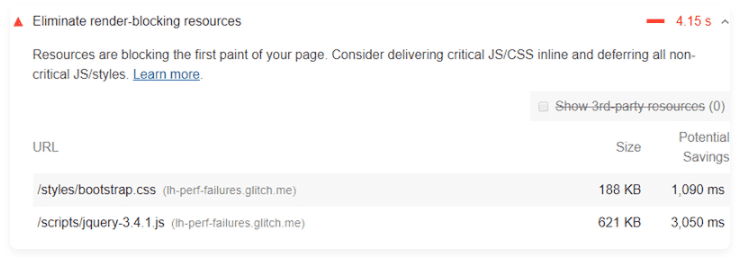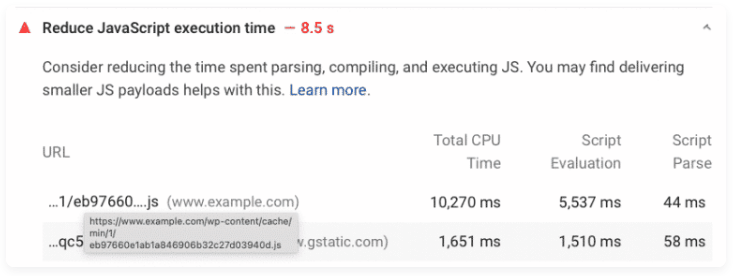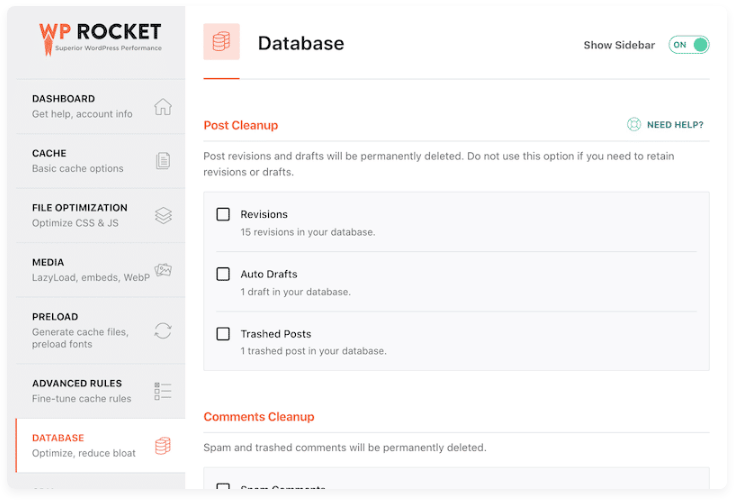In todays era the speed and performance of a website hold importance and can greatly impact the success of a business. With search engines giving priority to websites that load quickly it has become crucial to optimize the speed of your site.. Where should you begin?
No need to worry! This comprehensive guide, on enhancing WordPress performance will equip you with the tools and knowledge to make your website faster and more efficient. It covers everything from understanding the significance of speed to providing steps that you can implement away.
Within this article readers will gain insights into tips, for improving the speed of their WordPress websites and understand why their sites might be running slow. By following the practices outlined in this guide businesses can increase their chances of appearing on the page of search engine results ultimately boosting their online presence. So lets delve into it and explore how you can optimize your sites speed for success.

Why Page Speed is Important
Page speed is a crucial factor that can significantly impact the overall health of a WordPress site. Users today expect fast and responsive websites, and slow loading pages can lead to a poor user experience and reduced engagement. However, the importance of page speed goes beyond just user experience.
The effect, on SEO
According to Google, the speed at which a websites pages load plays a role in determining its ranking. With the Core Web Vitals update page speed will become more important. The Core Web Vitals consist of factors that Google deems significant for a websites user experience and one of those factors is loading speed. Therefore if a website takes long to load it can have an impact on its search engine ranking and result in decreased organic traffic.
Website Crawling
Fast loading websites are easier for web crawlers to navigate and process efficiently. On the hand slow loading websites may discourage web crawlers. Cause them to prioritize other sites ahead of yours. This can lead to visibility and lower search engine rankings.
Effect on Conversions
The speed at which a websites pages load can greatly influence its conversion rate. A slow loading website often leads to an user experience, which translates into reduced engagement and lower conversion rates. Conversely a fast loading website can enhance user engagement. Increase the likelihood of users taking desired actions.
Bounce Rate
The bounce rate of a website refers to the percentage of users who leave after viewing one page. A high bounce rate has effects, on both search engine rankings and overall user experience. Pages that load slowly can result in a bounce rate because users are more inclined to leave the website if it takes an amount of time to load.
Hence it is crucial to make sure that the page speed of a WordPress website is optimized for an smooth user experience. There are tools such, as PageSpeed Insights, Chrome UX Report and Lighthouse which can be utilized to evaluate the page speed of a website and measure its Core Web Vitals. By testing and enhancing the page speed website owners can boost their search engine rankings enhance user engagement and increase conversion rates.
Tips to Speed Up Your WordPress Site
If you want to speed up your WordPress site here are 19 tips you can use. Additionally there are 3 optimization steps that require no coding and can provide improvements:
- Ensure you have an robust hosting service of handling your sites traffic effectively while loading quickly.
- Utilize a cache plugin to decrease the load time, for your sites pages.
- Optimize your images. Implement loading techniques to reduce the time it takes for your sites images to load.
By following these steps you’ll be able to enhance the speed of your WordPress site without any coding knowledge or experience required.
Here are seven effective techniques to enhance the page speed of your WordPress website;
1. Opt for a theme specifically designed for speed to ensure that your website loads quickly.
2. Avoid using sliders as they can slow down the loading time of your site.
3. Remove any plugins that could potentially impact the performance of your site.
4. When dealing with media files consider uploading them to services instead of burdening your server.
5. Utilize a Content Delivery Network (CDN) to decrease the loading time for your sites content.
6. Keep your WordPress site up, to date by updating both WordPress itself and its plugins.
7. Reduce the number of post revisions stored in your sites database to minimize data congestion.
Additionally if you’re looking for strategies to optimize the performance of your WordPress site consider implementing these techniques;
1. Load JavaScript, with execution and delay JavaScript execution to expedite the loading process.
2. Defer essential CSS eliminate unused CSS and incorporate critical CSS inline to accelerate CSS loading.
By incorporating these practices into your website management you can significantly improve its speed and overall performance.
To enhance the performance of your website you can follow these steps;
1. Minimize. Css files to decrease the size of your sites files and speed up loading time.
2. Optimize your WordPress database. Minimize database calls to improve performance.
3. Break down posts, into pages to reduce the amount of data that needs to be loaded simultaneously.
4. Prevent websites from using your sites bandwidth by disabling hotlinking.
5. Ensure an speedy browsing experience by addressing any HTTPS/SSL errors on your site.
6. Utilize the PHP version, for improved performance.
By implementing these strategies you can optimize your websites functionality while enhancing its speed and security.
3 Basic Page Speed Optimization Steps (The Low Hanging Fruit With No Coding Required)
1. Choose a Powerful Hosting
A good hosting provider can significantly improve website performance. Managed WordPress hosting is the most optimized server configuration for running a WordPress site. It offers features dedicated to WordPress, such as automatic WordPress updates, security configurations, and much more. Dedicated hosting is also a good option as it rents a single server with all its available resources to one client, allowing the user to do whatever they want with their server. However, shared hosting should be used with caution as it shares server resources with many other people, which can impact website performance. It is important to choose a hosting provider that takes extra measures to optimize the website for performance and provides good customer support.
2. Use a Cache Plugin for Speed Optimization
A caching plugin generates static HTML pages of the website and saves them on the server. Each time a user tries to access the website, the caching plugin displays the lighter HTML page instead of the heavier WordPress PHP scripts. By using a tool like WP Rocket, users can cache resources and improve their page load speed by a lot, automatically. WP Rocket is a cache plugin that is easy to install and configure, with an intuitive and user-friendly dashboard. Reloading static resources like images and JavaScript files every time they are requested will slow down the site, but WP Rocket can cache those resources and improve the page load speed significantly.

3. Optimize Your Images and Use Lazy Loading
Optimizing images is essential for improving the loading speed of a website. Users should reduce the weight of their images and resize them according to their real size on their pages to prevent Lighthouse issues.

A good solution for this is to use Imagify, which automatically optimizes all images, including thumbnails, when uploaded into WordPress. WP Rocket also adds missing width and height attributes to images in the Media tab.

Users should also apply the LazyLoading script, which WP Rocket implements on images, iframes, and videos. The Rocket Lazy Load plugin is another way to get this sort of lazy loading on images. By following these essential tips, users can significantly improve the loading speed of their website.

7 Best Practices to Improve Speed
Use the Right Theme: Choose a Theme Optimized for Page Speed
Choosing the right theme is crucial for optimizing the speed of your WordPress site. It is recommended to select a theme that is not only aesthetically pleasing but also optimized for speed. This can be achieved by conducting research and taking the time to make the right choice. WP Rocket has combined a list of the fastest WordPress themes that can help you choose the right one. Additionally, switching to a theme that provides performance optimization features can also improve your site’s speed. The Query Monitor plugin can be used to find out if the installed theme is causing any performance issues.
Don’t Use a Slider on Your Header
Using a slider on your header can have a significant impact on your site’s performance. Although many sites tend to use them, it is not recommended as this is one of the actions that will have the worst impact on speed.
Eliminate Bloated Plugins
Installing numerous plugins on your site can be tempting, but it is essential to be wary of their impact on your site’s speed. If there are plugins that are unnecessarily bloated and running numerous additional scripts, it might make sense to consider finding more efficient alternatives or just eliminating them. Testing your site speed before and after activating a plugin is recommended to measure the performance of your WordPress site. Removing all the unused plugins can also help to avoid adding vulnerability points to your site. The Query Monitor plugin can be used to find out which installed plugins are causing performance issues.
Upload Large Media Files to Suitable Services
Uploading large media files to YouTube, Viméo, or SoundCloud instead of using the WordPress backend to host them is much more efficient. Your WordPress site can then point to that digital asset rather than render it, and your whole site will get much faster as a result. WP Rocket’s “LazyLoad” feature for YouTube can also be used to improve your page loading time. You can also use WP Rocket’s “LazyLoad” feature for YouTube. Check the “Replace YouTube iframe with the preview image” box, and this will improve your page loading time.

Make Use of a Content Delivery Network (CDN)
Using a CDN is recommended if your target audience is distributed around the world. A CDN creates a network of servers around the world that store static files, making for much faster loading times in different scenarios. RocketCDN, which is WP Rocket’s premium CDN, is recommended as it automatically applies the best performance settings.
Make Regular WordPress Updates
Installing regular updates ensures that you always have the latest version of WordPress running your site, which can improve its overall functionality.
Limit Post Revisions
The WordPress revisions system stores a record of each saved draft or published update. Too many post revisions can impact the speed of your WordPress site if your pages are not cached. A solution to limit the post revisions is to add a code snippet to your wp-config.php file. The recommended number of revisions is five, but you can set up your own figure.
define( ‘WP_POST_REVISIONS’, 5 );
Give WP Rocket a try today. Witness how it can elevate your Google Page Speed results!
9 Advanced Performance Optimization Strategies
Load JavaScript Deferred and Delay Javascript Execution
To improve website performance, it is important to load JavaScript deferred and delay its execution.

This can be done by inlining critical resources, deferring non-critical JS resources, and removing unused JavaScript. W


P Rocket is a plugin that can be used to optimize JS files and load JS deferred and delay JavaScript execution in a few clicks. Other plugins that can help remove unused JS files include Flying Scripts, WP Meteor, Plugin Organizer, Gonzales, and Perfmatters.
Defer Non-Critical CSS, Remove Unused CSS, and Inline Critical CSS
Non-critical CSS can affect loading time and generate recommendations such as “Eliminate render-blocking resources” and “Avoid chaining critical requests”. Critical CSS, on the other hand, should have the highest priority. It is important to inline critical resources, defer non-critical CSS resources, and remove unused CSS. WP Rocket offers the Remove Unused CSS option, which can take care of CSS optimization and remove unused CSS easily. Other plugins and tools that can help tackle CSS include Asset CleanUp, PurifyCSS, and Critical Path CSS Generator.
Minify JavaScript
JavaScript minification refers to removing unnecessary and redundant code without affecting how the browser processes the data. The goal is to make the file much lighter by reducing the size of the code. This can be done manually using a free online tool like minifier.org or through a plugin like WP Rocket that removes unnecessary JS to make the website load faster.
Minify CSS
CSS minification removes extra spaces and comments from CSS files. By getting rid of unnecessary content, the file size can be reduced. A free online tool like minifier.org can be used to minify CSS files. WP Rocket can also be used to clean up CSS files and reduce file size.
Optimize Your WordPress Database and Reduce Database Calls
As websites grow, WordPress databases also grow, with some portions of data becoming obsolete over time. By eliminating information that is no longer needed, databases can function more efficiently, resulting in faster loading speeds. PHPMyAdmin can be used to optimize databases manually, or plugins like WP Rocket and WP-Optimize can be used to optimize databases automatically.

Split Long Posts into Pages
Long posts can affect website performance, so it may be beneficial to split them into several pages. The <!––nextpage––> tag can be added to the article where it needs to be split. Plugins like WP-PageNavi can help activate pagination and control the layout of posts.
Disable Hotlinking
Hotlinking occurs when other websites use images and bandwidth from your website without permission. This can affect website performance. To protect content against hotlinking, specific domains can be blocked, or plugins like All in one WP Security can be used.
Fix HTTPS/SSL Errors
SSL errors can negatively impact website performance and browsing experience. Hosting providers may offer HTTPS and SSL options, or plugins like Real Simple SSL can be used to fix HTTPS/SSL errors.
Use the Latest PHP Version
Using the latest PHP version allows WordPress sites to run faster. Hosting providers can be asked to upgrade to the latest PHP version, or plugins like Version Info can be used to check the PHP version being used.
Why Is Your WordPress Site Loading Slowly? (8 Errors to Avoid)
1. The Static Resources of Your Pages Are Not Cached
If you’re not caching your static resources, like images, HTML, CSS, and JavaScript files, your WordPress site will be slower than it could be. By using WP Rocket or a similar caching plugin, you can have these resources cached with just a click of a button. Choosing the best WordPress cache plugin will make your site run at the speed of light immediately upon its installation.
2. HTML, CSS, and JavaScript Files Are Not Minified
Minification is a technique for code optimization that removes any unnecessary parts of HTML, CSS, and JavaScript files. This makes the code base more compact, reducing its size, and making it more efficient. According to a SEMrush study, only 32% of websites use this technique, so there is lots of potential here to make your site faster. WP Rocket allows you to minify your JS and CSS files in just one click, making it simple and easy.
3. GZIP Compression Is Not Working
When you compress your GZIP files, you reduce their size and allow the code to run faster. This particular compression runs on the server-side, so it’s something that you’ll need to check with your hosting provider. But if you can get it right, there are significant improvements to be unlocked. To understand more about GZIP compression and how to check if it’s working, check out our article What Is GZIP Compression for WordPress?
4. Your Site Has Too Many HTTP Redirects
The more links your site is redirecting, the slower the page loading speed will be. So, just by reducing the number of HTTP redirects, you’ll benefit from significant performance improvements.
5. You’re Not Perfectly Optimizing Your Images
Images can often be one of the trickiest parts of loading a website, and if you’re not optimizing how they are being loaded, you are slowing your site down. As far as you can, be sure to reduce their size wherever possible, resize them according to the real size on your pages, and enable lazyloading to improve performance even further.
6. You Chose a Cheap Hosting Provider
Choosing a cheap hosting provider can slow down your site. It’s important to invest in a hosting provider with a strong track record and a willingness to ensure fast and reliable performance for your visitors. Besides the cost of the service, your choice should be based on other relevant factors, such as the reputation of the company, features like HTTP/2, hardware, and scalability.
7. You’re Still Using an Obsolete PHP Version
If you’re using an old PHP version, you aren’t benefitting from the continual improvements made to the language over time. Be sure that you’re using the latest version, which is on the cutting edge of the technology and is best suited to give you great performance results. As an additional benefit, an updated PHP version will also fix a slow WordPress admin.
8. You’re Not Regularly Checking Your Website Speed
Your website speed is a metric that you should be checking regularly to ensure that nothing is going wrong and that you can always look for ways to improve it. This should be a regular part of your business maintenance procedures because the landscape is continually shifting under our feet. According to the results you found when running the audit, we recommend you also read how to optimize your Core Web vitals scores.
How to Speed Up Your WordPress Site with WP Rocket
WP Rocket is a plugin designed to help optimize the speed and performance of WordPress sites. By simply installing and activating the plugin, users can see immediate improvements in caching, redirects, and image optimization. Additionally, WP Rocket can take care of 80% of best practice improvements without requiring any coding knowledge.
In a recent case study, WP Rocket was shown to significantly improve the Lighthouse performance score. Before installing WP Rocket, the performance grade was orange, the Core Web Vitals were in the red, and the Speed Index was orange. After installing WP Rocket, the performance grade was green, all Core Web Vitals were green, and the Speed Index was green as well.
WP Rocket also offers advanced features such as lazy loading and minification that can further improve site speed and performance. These advanced settings can help fix issues diagnosed by PageSpeed Insight and even help a site score 100% on Google’s Page Speed test.
One of the benefits of WP Rocket is that it takes care of all the necessary integrations and implementations for speed optimization. Users don’t need to worry about tinkering with the back end themselves. The plugin fits seamlessly into the WordPress setup and can fix issues flagged by Google such as image elements without explicit height and weight, render-blocking resources, and initial server response time.
Upon activation of WP Rocket and tweaking a few options, previously flagged issues can move to the “Passed audits” section. WP Rocket enables text compression, GZIP compression, and serves static assets with an efficient cache policy.
In summary, WP Rocket is a powerful plugin that can significantly improve the speed and performance of WordPress sites. By taking care of best practice improvements and offering advanced features, WP Rocket makes it easy for users to optimize their sites without requiring extensive coding knowledge.
Wrapping Up
In conclusion, optimizing the loading speed of a WordPress site is crucial in improving user experience and increasing traffic and sales. WP Rocket is a highly recommended tool to achieve significant improvements in PageSpeed Insights score. Fixing the most important issues flagged by Google will also ensure that Core Web Vitals are in the green, further enhancing the site’s performance.
By leveraging the best practices and tools available, anyone can achieve a faster and more efficient website. It only requires awareness and a willingness to work with these tools. Failure to optimize a site’s loading speed may result in missed opportunities for traffic and sales.
Therefore, it is highly recommended to take action and optimize the site’s loading speed using the best practices and tools available. With a faster site, users will have a better experience and be more likely to engage with the content.

